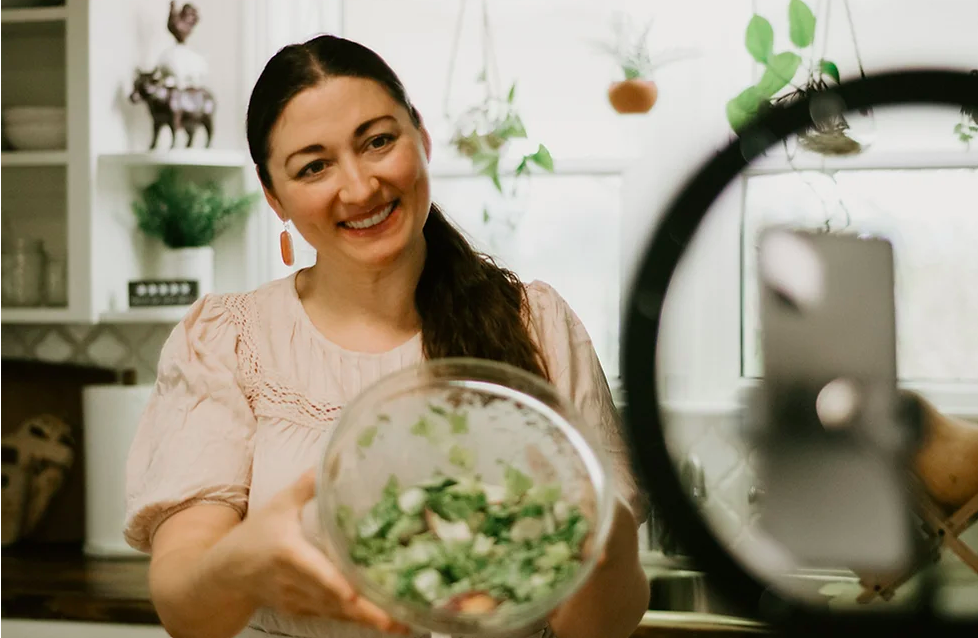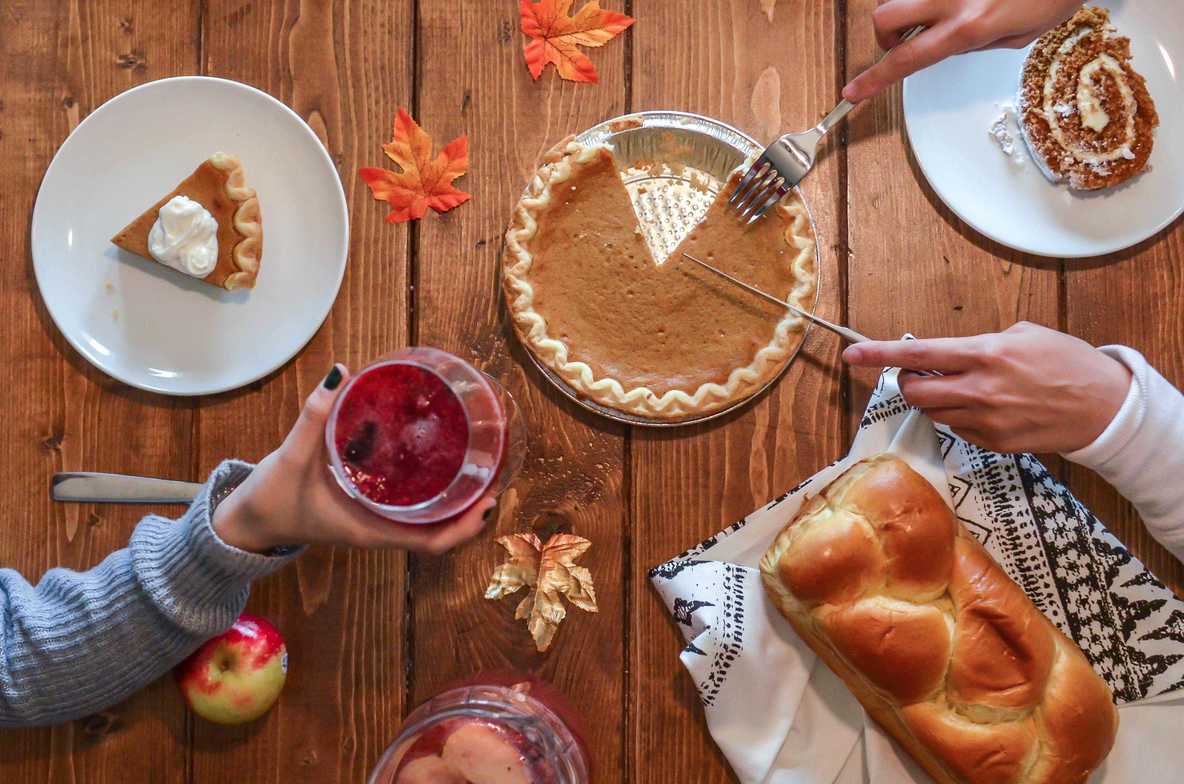
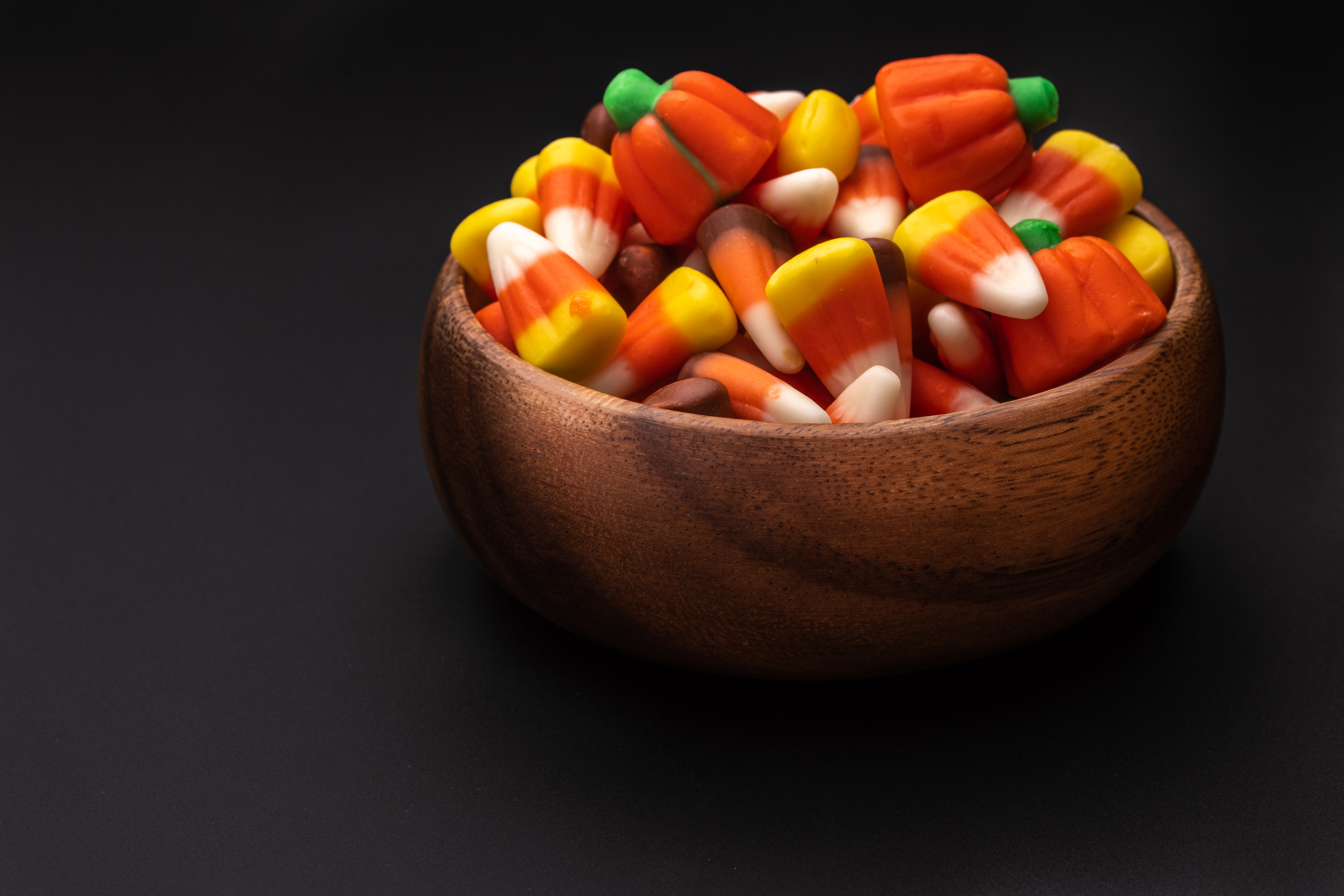
Halloween is over. Stores all around Hendersonville have Reese's Pumpkins for half off and if you have kids, there is probably a giant bowl of trick-or-treat candy sitting on the table…staring at you, calling your name every time you pass by. You try to be a good parent and limit how much candy your kids eat on a daily basis. But you are an adult…those rules no longer apply to you! So you chip away at the stash until all the good stuff is gone and it’s just Gobstoppers and black licorice. You throw those in the trash and vow to start eating healthier…just in time for Thanksgiving and the holidays: candied yams, ambrosia salad, fancy cocktails, pies, cookies. Why does all the good stuff have so much added sugar? And what makes us crave those sugary treats?
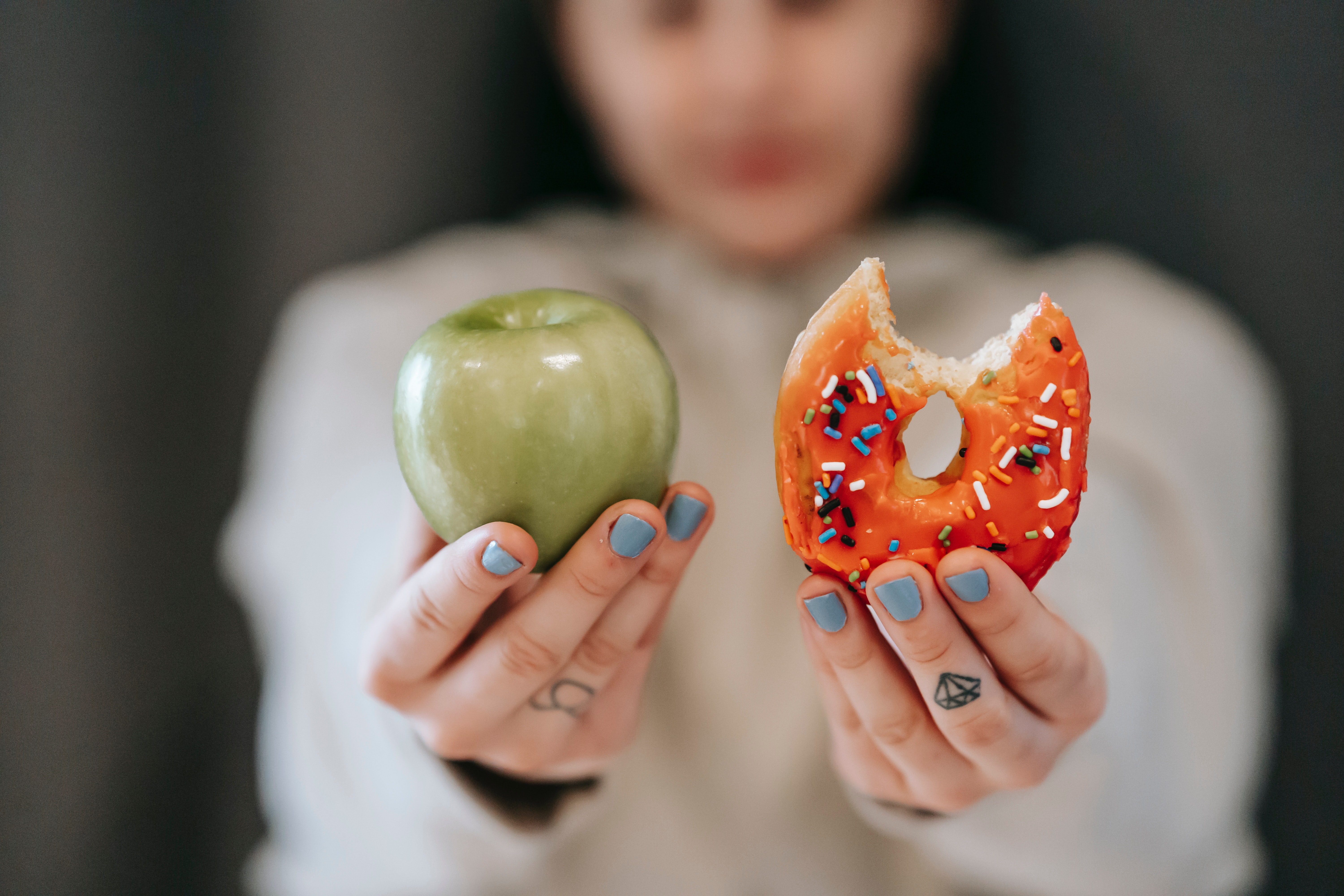
Not all sugar is our enemy.
First of all, not all sugar is bad! Sugar occurs naturally in all foods that contain carbohydrates (like fruits, vegetables, and grains). These are natural sugars and they can be found in whole, unprocessed foods. However, naturally occurring sugars aren’t the issue. The issue comes into play when you begin consuming too many foods with added sugar - that is, sugar that food manufacturers add to products to increase flavor or extend shelf life.
Unlike fruits and vegetables, added sugar doesn’t contribute any nutrients, only calories. If you eat a piece of fruit, you are consuming sugar, but you’re also consuming fiber, vitamins, minerals, and phytonutrients, which are found in fruits and vegetables and keep your body working properly. These things are beneficial to the healthy bacteria in your gut, as well as helping your body digest the sugar you just consumed with that piece of fruit.

Where do we draw the line?
The American Heart Association recommends that men should consume no more than 9 teaspoons (36 grams or 150 calories) of added sugar per day. For women, the number is lower: 6 teaspoons (25 grams or 100 calories) per day. Unfortunately, the average American adult consumes more like 77 grams per day! The numbers are even worse for children. American kids consume 81 grams per day. Consider that one 12-ounce can of soda contains 8 teaspoons (32 grams) of added sugar! There goes your whole day’s allotment in one slurp. Think of it this way – children are ingesting over 30 gallons of added sugars from beverages alone. That’s enough to fill a bathtub!
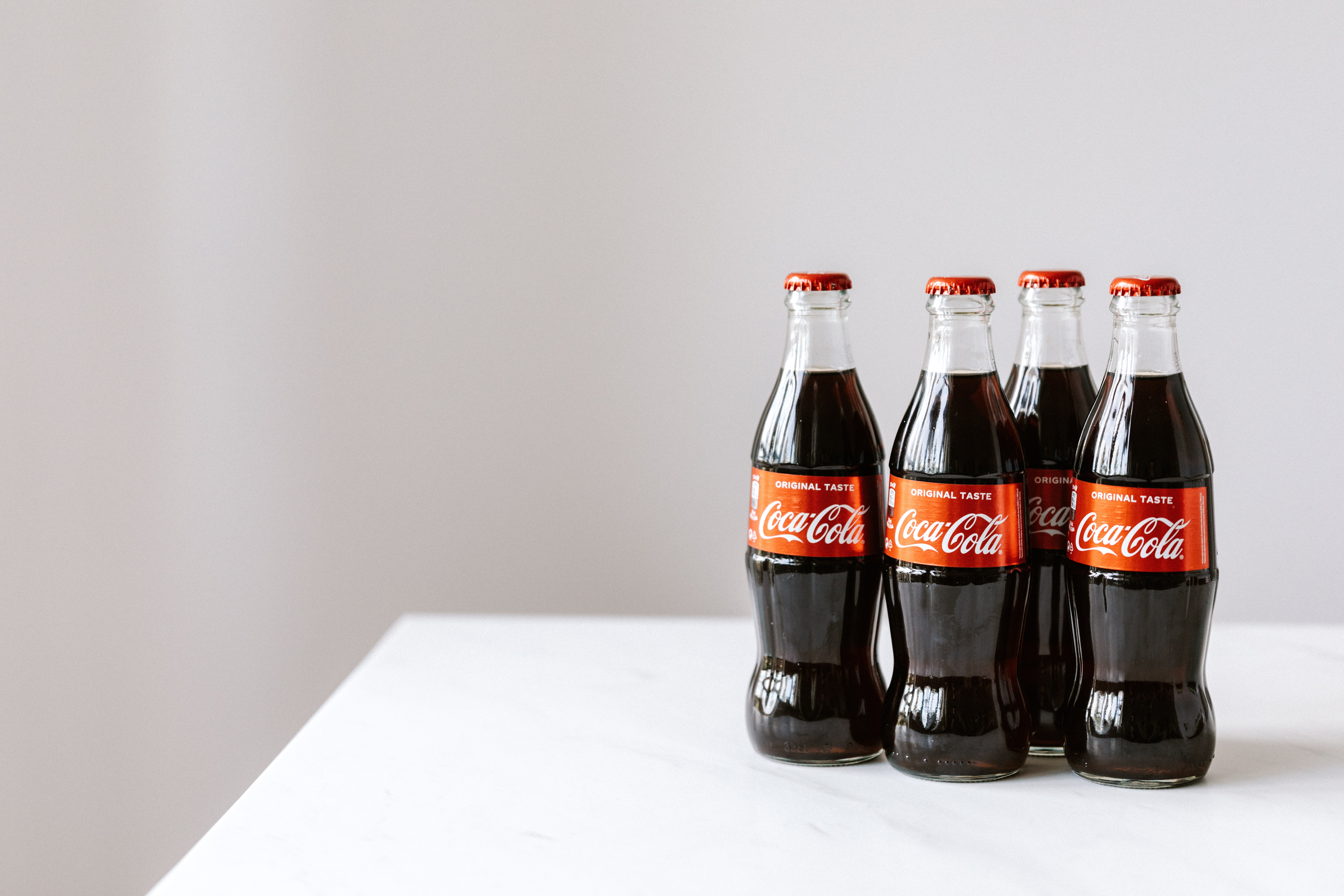
What’s the harm in a few sodas?
The risks outweigh the benefits of added sugars. One of the greatest risks is heart disease. Research shows that people who eat a lot of added sugars are at greater risk of dying from heart disease compared to people whose diets aren’t so sweet.
Other negative impacts include:
- Weight Gain: A few holiday pounds are not the end of the world, but over time obesity drives up the risk of diabetes, high blood pressure and high cholesterol — all of which can increase the risk of developing heart disease.
- Poor Nutrition: A high sugar diet is bad for you no matter what you weigh. If you eat a lot of sweets or processed food, you might not be getting enough fresh fruits or whole grains which we know are vital to a healthy diet.
- Joint Pain: Sugar is a known cause of inflammation in our bodies. It causes the body to release cytokines, or inflammatory messengers, which contribute to joint destruction. Not only does it worsen joint pain, but studies show that it can increase your risk of developing rheumatoid arthritis. Chronic inflammation can also stress your heart and blood vessels and is thus another contributor to an increased risk of heart disease.
- Skin Issues: There have been many studies that show a link between poor diet and acne. However, did you know that added sugar can also make your skin age faster?!? When artificial and processed sugars enter our bloodstream, they sometimes attach to collagen and elastin proteins in the skin and start to break them down. When these proteins are damaged, they can no longer do their job in keeping your skin firm and youthful-looking.
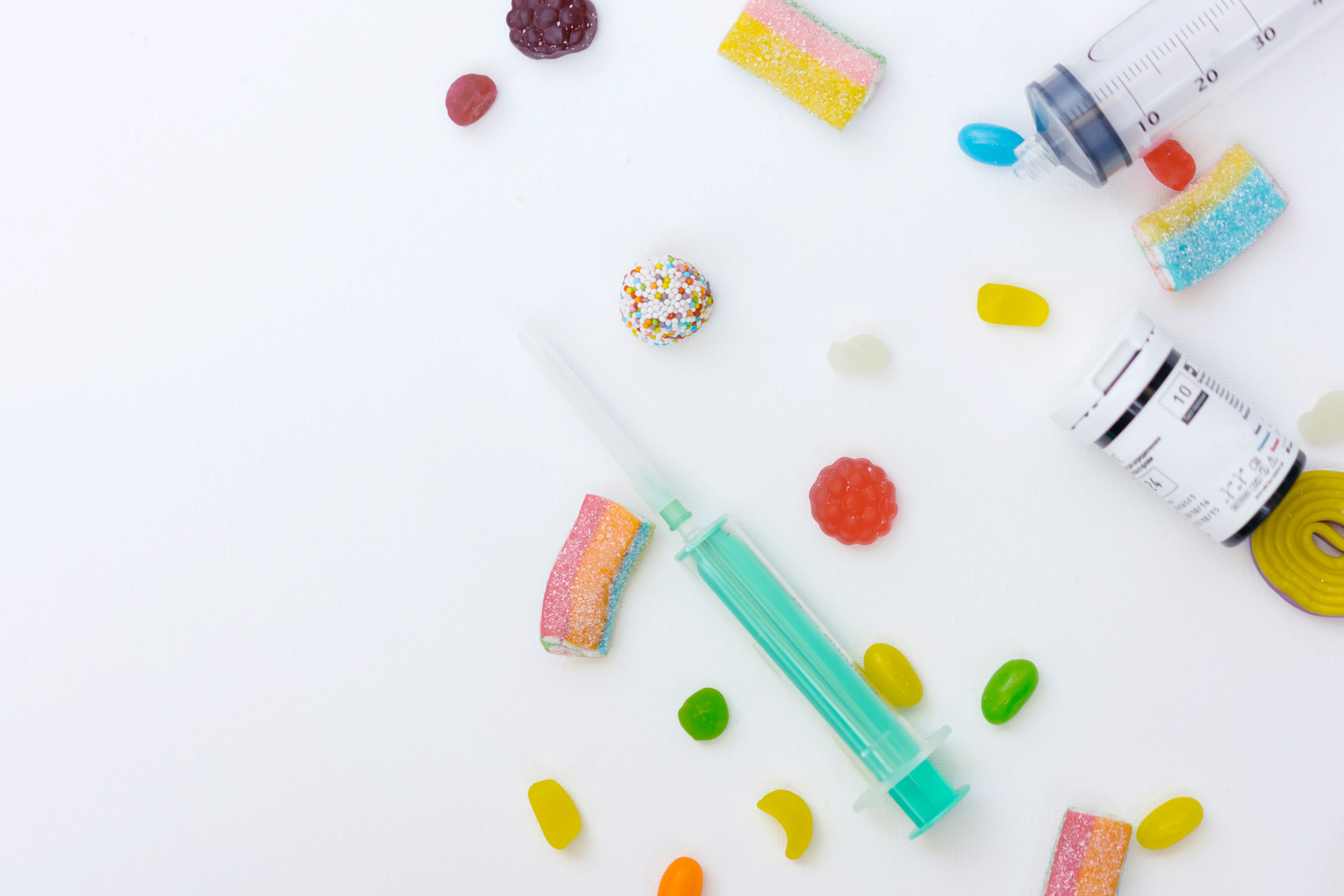
Why does sugar have to taste so good?
Sugar activates the same pleasure centers in the brain as cocaine. When you eats sugar, feel-good chemicals like dopamine and opioids are released, activating a “reward system” in the brain. This is similar to the way the brain reacts to substances like heroin and cocaine. And the similarities don’t stop there.
Sugar can be as addictive as cocaine. Sugar triggers dopamine “hits” in the brain, making us crave more of it. Every time we eat sweets, we reinforce neural pathways, causing the brain to crave more sugar. Thus, building up a tolerance like any other drug. Over time, greater amounts are required to reach that same feel-good state.
Although sugar is not an illegal substance, it’s safe to say it has more parallels to illegal drugs than we would like to think. It is important to know the strong effects sugar has on us, as sugar plays a huge role in our everyday lives.

How can we make better choices?
Making healthy food choices during the holidays can be TOUGH! For guidance, I turned to resident anti-inflammatory expert, Laura Rodriguez. She is a holistic chef, autoimmune warrior and backyard farmer. She helps other autoimmune warriors grow and eat anti-inflammatory comfort food that won't cause autoimmune flare-ups through education, consultations and holistic personal chef services.
She has been cooking professionally since 2012 and using food as medicine to manage Rheumatoid Arthritis since 2015. She has reversed several personal diet and lifestyle related conditions through diet and lifestyle changes and it's her passion and personal mission to help others do the same without sacrificing their love of delicious, comforting, gourmet food!
Read on for our interview!
Dr. Heather Champion: What is your go-to for curbing sugar cravings?
Chef Laura Rodriguez: "For me, keeping my gut microbiome in balance is the first step. I've suffered with candida overgrowth, leaky gut and gut dysbiosis before and once I reversed all of those things, I naturally didn't crave sweets and sugar all the time.
So any time I notice an unusual amount of sweet cravings coming on, I'll pay more attention to my gut health. Whether it's taking my probiotics, adding more prebiotic foods in, or just rotating my foods more, I’m able to keep those sweet cravings in check naturally. Any time I crave something sweet, whether it's a hormonal thing or just after a super savory meal, I eat something that's naturally sweet but still nutritious. My favorites are fresh fruit, dark chocolate, or dried dates."
HC: What do clients struggle with the most when making healthy switches?
LR: "Doing it consistently enough to see results!
Once you start to notice the benefits of the hard work you're putting in, it's super easy to stick to it. But for so many folks, that can take weeks or months of consistency..and with our busy lives, it can be really difficult to stick to a new routine. Especially if it involves cooking from scratch at home every day."
HC: What piece of advice would you give to someone who wants to limit added sugars in their diet?
LR: "Keep raw honey and dark maple syrup on hand for anything you're making at home. For packaged items, look at the ingredient list on the back. Reach for varieties that say 'No Sugar Added' or have 0 grams of sugar listed on the nutrition panel.
And of course, avoiding sugary drinks! That's a real easy way to limit your intake of unnecessary sugars."
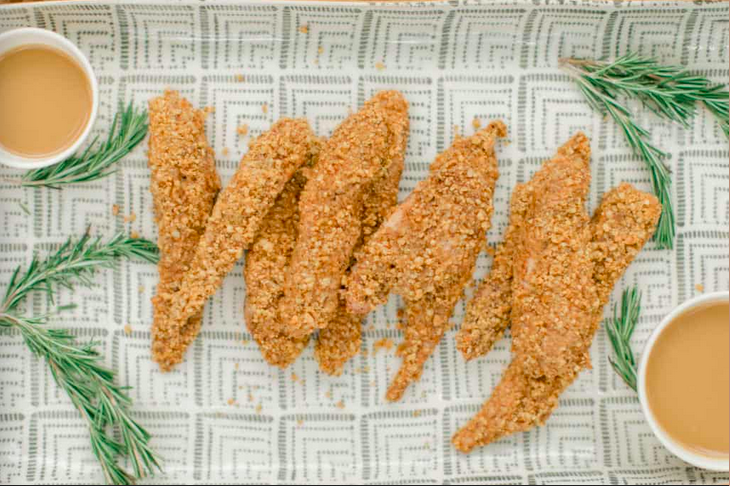
Walnut-Crusted Chicken Tenders With “Honey Mustard” Dipping Sauce
HC: How can we navigate the holidays while also making smart food choices?
LR: "You know, this is a really loaded question and something I'll be talking about a lot in the coming weeks. Basically, the best way to make smart food choices around the holidays is getting into a head space where you understand and believe that you are worthy of living a long, healthy, vibrant life that is free of chronic health issues. Then, changing what you eat can help get you there.
If you look at food with a 'diet mentality' and see good and bad foods on the holiday table or if you tell yourself you're bad for indulging in a piece of pie at Thanksgiving...you're still equating morality with food. When really, it's just about..."Do I want to feel like crap forever or do I want to feel my best?" As someone who suffered a 2 1/2 year Rheumatoid Arthritis relapse, I can tell you - there isn't a food on this planet that tastes better than healthy feels.
So when I'm faced with food choices that don't agree with me biologically, I simply don't eat them because I know my worth and I know what I want for myself. I know what I want for my future. And that is to be healthy, happy, and pain-free. And I'm not going to let any food take that away from me! So, if you can work towards adopting a mindset similar to that (as it fits into your life), you'll be in good shape for the holidays!"
HC: What is your favorite dish to bring to family holiday functions?
LR: "Mashed Potato Stuffed Turkey Meatballs in Gravy and my Apple Pear Cranberry Sauce. They're both show stoppers and no one can tell they're healthy!"
For delicious flare-free recipes (like the one pictured above featured in Meaningful Living) or to schedule a consult to kick-off your own anti-inflammatory journey, click here now!
Resources:
Harvard Heart Health
CDC Nutrition Data
British Journal of Sports Medicine
Dr. Heather Champion
Contact Me